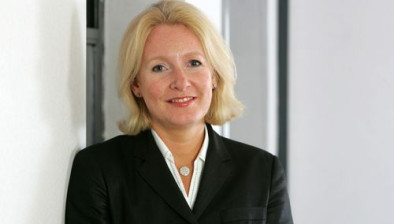CBI: Tax and training reforms are vital to safeguard Scotland’s £24.7bn retail industry

The CBI is also keen to see greater flexibility in the Apprenticeship Levy.
New research by CBI Economics, conducted on behalf of the CBI and its retail members, reveals retail and wholesale activity is now worth £352 billion a year to the UK economy.
According to the research, urgent reforms to the UK’s outdated Business Rates system and inflexible Apprenticeship Levy are essential to support a retail and wholesale industry which underpins economic activity in every town and city across Scotland. In Scotland alone, the sector is worth £24.722bn to the economy and sustains 417,993 jobs.
That includes:
- City of Edinburgh - £3.537bn and 51,130 jobs (17% of area’s total)
- Glasgow City - £3.428bn and 63,434 jobs (17% of area’s total)
- Angus & Dundee City - £948m and 17,605 jobs (18% of area’s total)
- Aberdeen City & Aberdeenshire - £2.963bn and 44,818 jobs (18% of area’s total)
All of this adds substantial benefits to the public purse too, with the £50billion retailers and wholesalers pay nationally in taxes enough to fund 110 new hospitals a year.
Yet the fallout from Covid and war in Ukraine continues to weigh heavily on the sector, and an inflation-linked 10% Business Rates hike due in the spring risks plunging many firms into a fight for survival. A slow revaluations system also means retailers and wholesalers are already overpaying, with many facing liabilities as high as rents.
That is why the CBI – supported by the Scottish Retail Consortium (SRC) – is urging the Scottish Government to both rethink any rise in rates and implement longer term reforms which reward investment. The Scottish Government could take steps now by bringing forward their commitment to ensure the Large Business Supplement is brought into line with rates in England, ensuring firms are not facing a longer-term competitive disadvantage during the current cost-of-doing business crisis.
The CBI is also keen to see greater flexibility in the Apprenticeship Levy, a move which could have an enormous impact on a sector which already spends £4billion a year on training. This amounts to a tenth of all training spend in the UK.
Together, these measures could generate renewed optimism and investment in a sector which plays a vital role in Scottish communities, the wider economy and the growth prospects for UK plc.
CBI Scotland director, Tracy Black, said: “Retail and wholesale businesses have remained at the epicentre of every economic ecosystem in Scotland throughout the crises of the pandemic, war in Ukraine, supply chain disruption and surging costs. The sector has often been the first line of defence during these economic headwinds, and continues to prioritise supporting households, as well as their employees, through these challenges.
“With economic growth now a national imperative, the industry is once again leading the charge. Retailers and wholesalers continue to invest heavily in training their employees; they not only decarbonise their own operations, but help their customers reduce their carbon footprint too; and they’re levelling-up in action, as anchor points on Scottish high streets.
“Amid unprecedented levels of inflation and a cost-of-living crisis, it has never been more important to have retail and wholesale firing on all cylinders.”
She added: “That is why we are asking the Scottish Government to smooth the looming Business Rates cliff edge; without intervention to freeze business rates in 2023, firms face the possibility of eye-watering rises which present an existential threat for many businesses that communities depend on. Longer-term reforms which encourage investment and fresh thinking on the Apprenticeship Levy can help future-proof the sector and spur further growth.
“While this is a fragile moment for the economy, and the immediate focus is rightly on restoring macroeconomic stability, there is real ambition within retail and wholesale to help unlock the huge growth opportunities for Scottish businesses. They know the right actions now mean we can look forward to a 2023 of promise, potential and prosperity.”
Mohammad Jamei, director of CBI Economics, added: “The retail and wholesale sector has undergone significant change over the recent decade and is on the cusp of digital transformation. It has also been a key sector delivering for its customers and its employees throughout the challenging times of recent years.
“The sector therefore has a lot to contribute both in overcoming short-term challenges and in creating future economic opportunity; driving technological advancements to keep ahead of consumer need, and creating transferrable digital skills to safeguard employees’ future and enable their progression.
“As such, we were pleased to work with businesses in the sector to build the evidence around the myriad ways they contribute to the economy, to society and to local communities. We are excited to share our findings today and we hope it kick-starts open and constructive conversations between business and government on how to work together to ride out the difficult times ahead and create long-term prosperity.”
David Lonsdale, director of the Scottish Retail Consortium, commented: “The CBI’s new report demonstrates the enormous economic and social contribution that the retail industry makes to Scotland’s communities.
“Retailers have shown tremendous fortitude and resilience to come through the tribulations of the past few years, continually adapting their business models at pace to meet evolving customer expectations.
“If the industry and the broader ecosystem it supports is to flourish and fulfil its potential over the decade ahead then change is required from policy-makers. It’s crucial we see a more strategic and collaborative approach from government towards nurturing the growth of the industry, coupled with concerted action to reduce the burgeoning cost of doing business. This will help retailers keep down prices for customers, rejuvenate our high streets and city centres, and sustain tax revenues for government.”








